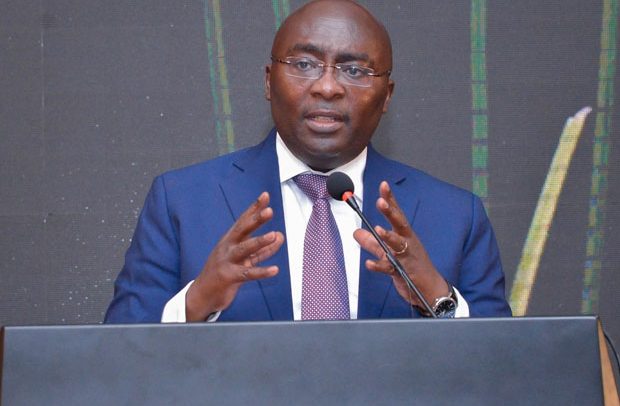Vice President Bawumia has started dropping hints on how the NPP will be under his leadership.
Key among them is his decision to conserve marine and freshwater environments while using them in a sustainable way to develop economic growth and produce resources such as energy and food.
He has since resolved to have the party’s manifesto under his leadership to include strong and inclusive blue economy component for sustainable growth and development.
That, he said, has great potential of creating jobs for the youth, improve food security and accelerating economic growth.
Vice President Bawumia said this at the Third Biennial Conference on Fisheries and Coastal Environment in Accra yesterday under the theme: “Inclusive Blue Economy in Africa: Toward Sustainable Transformation and Resilience of the Marine Environment.”
Meanwhile, he said government, under the leadership of President Akufo-Addo has approved a loan of $150 million from the World Bank under the West Africa Coastal Area Programme (WACAP) to stem the tide of coastal degradation occurring in the country’s coastal areas.
The three-day conference, organised by the Centre of Coastal Management – The Africa Centre of Excellence in Coastal Resilience (ACECoR), University of Cape Coast, brought together the academia, development partners, civil society organisations, the media and fishery groups.
The event, among others, aimed at fostering stronger connection among the fishery stakeholders and brainstorm on ways to influence policy decision on the blue economy.
It also intended to maximise fishery resources for improved livelihoods, job creation and food security, as well as resolve conflicts within the marine resource management and piracy on the ocean.
Globally, the marine resource value chain is estimated at $24 trillion dollars.
In Ghana, the marine resources contributes between four and 10 percent of the annual gross domestic product (GDP), with over two million people depending on it for survival.
Dr. Bawumia said government believes that the ocean presents a huge opportunity to accelerate development and improve upon the well-being of the citizens.
He, therefore, called for a collective effort by all stakeholders to ensure sustainable utilisation, transformation and resilience of Ghana and Africa’s marine environment.
Vice President Bawumia expressed government’s commitment to stem the tide on illegal, unreported and unregulated (IUU) fishing practices, adding that there was an urgent need to tackle illegal activities that threaten the sustainability of the ocean environment.
On her part, the Pro Vice Chancellor, University of Cape Coast, Professor Rosemond Boahene said the university’s Centre for Coastal Management was aimed at fostering stronger connection among researchers, industry, professionals, CSOs and the media to attain Ghana’s blue economy agenda.
She believed that the country’s marine resources presented an enormous opportunity for sustainable growth and leverage the biotechnology of the marine environment to develop eco-friendly products as well as utilise the renewable energy sources in order to reduce dependence on fossil fuel.
Prof. Denis W. Aheto, the Director, Centre for Coastal Management, University of Cape Coast, highlighted some of the topical issues tabled down for discussions by the participants during the conference.
They included: Marine Protected Areas as a Tool for Fisheries Management, Coastal Engineering, Oil Spillage, Marine Security and Transportation, Renewable and Non Energy Sources and Coastal Management and Aquaculture Development.
By Charles Takyi-Boadu, Presidential Correspondent

